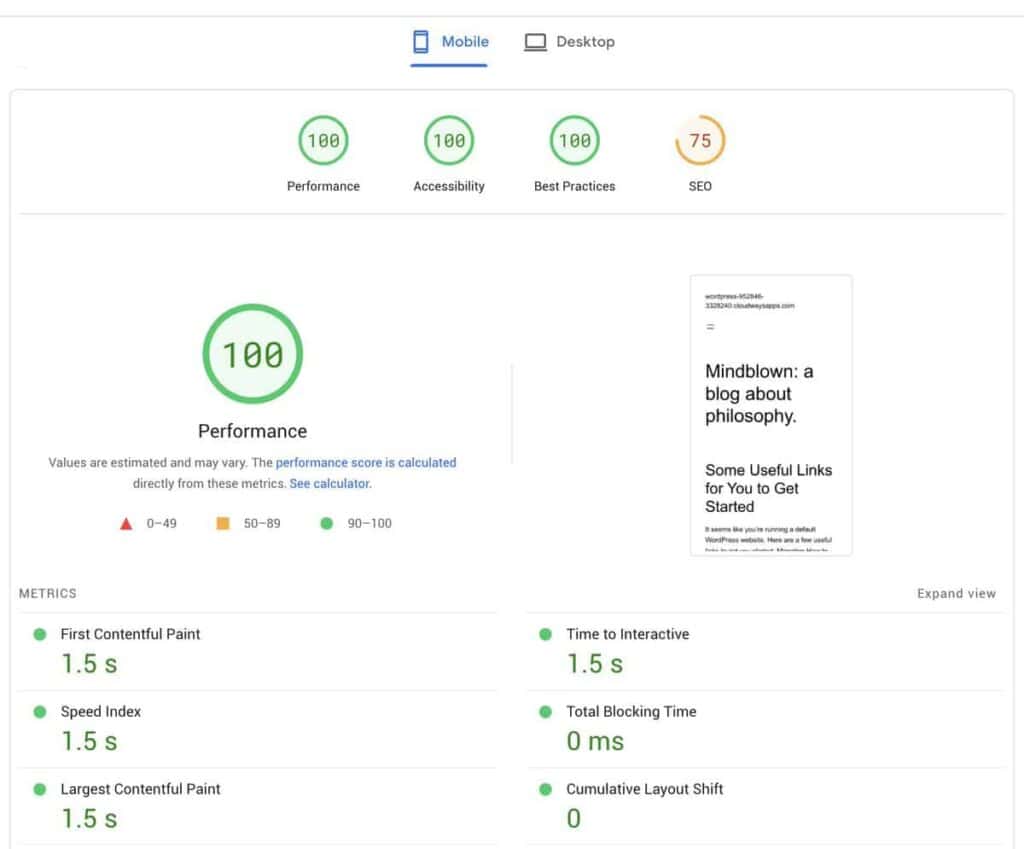If you’re just getting started with WordPress, you probably have some questions.
Clio Websites has been built through the launching and maintaining of dozens of WordPress websites. If you’d like to learn more about our WordPress plans, please visit this page.
We’ve put together this handy guide to answer the most common WordPress questions, and to help you get started. It’s based on real-life questions we’re frequently asked by small business owners.
Use the table of contents to navigate quickly to specific questions and answers.
Table of Contents
What is WordPress, and how does it work?
WordPress makes it easier for business owners to build and manage their websites. It dominates the web, powering 40% of all websites.
You don’t need coding skills to use WordPress, yet it offers a wide variety of themes, plugins and widgets that allow for complete customization. PHP and MySQL drive server-side processes, and a user-friendly dashboard enables site design, content management, and performance tracking.
Is WordPress free?
Yes! WordPress is an open-source project, free to download, modify, and use. You’ll just need to create a hosting account to launch your own WordPress site.
WordPress.com is different, however. It’s a paid subscription-based product for blogging and building websites (much like Wix).
What is the difference between WordPress.org and WordPress.com?
Let’s start by clarifying that there are two versions of WordPress.
WordPress.org is the open-source version of WordPress that can be downloaded, modified, and installed locally or on any hosting provider you choose.
WordPress.com is the paid, subscription-based version of WordPress. Think of it as a Wix or Squarespace style of platform for building websites and blogs. It’s easier to get started with and to use, but it isn’t as customizable. It also doesn’t have as many options as the open-source version.
Do I need to know PHP to work with WordPress?
The short answer is no. Unless you’re planning to create your own themes and plugins, you do not need to know PHP.
While PHP is useful for troubleshooting WordPress, you won’t need it to create and launch websites.
Do I need to know programming to launch a WordPress website?
Nope. You can use a visual designer like Elementor, or Beaver Builder. Starting with a good quality and customizable WordPress theme makes this process easier.
Coding skills are useful for users who want to modify, customize, and troubleshoot their website.
How do I install WordPress?
Most hosting companies have a one-click variety of installation for launching WordPress websites. Those that don’t have a bit more complex of a process.
We recommend that new WordPress users select a hosting company that offers easy WordPress installation. Siteground and Kinsta are great options for hosting.
How do I create a new post or page in WordPress?
To create a new post or page in WordPress, start by logging into the dashboard.
For a post, click ‘Posts > Add New’; for a page, click ‘Pages > Add New’. Enter a title and content using the block editor, then apply formatting and media.
Utilize categories and tags for posts. When you’re happy with what you’ve created, simply click ‘Publish’.
How to duplicate a page or post in WordPress?
Since this is a more detailed process, check out our article covering 4 easy ways to duplicate anything in WordPress.
Can I install WordPress on my computer?
Yes, you can. You’ll need to set up a MAMP, WAMP or LAMP environment—which is a bit more advanced.
One of the easiest options is to install a desktop application like Local WordPress (localwp.com).
How do I backup and restore my WordPress site?
Most hosting providers offer a daily backup service. However, we recommend that you cover your bases by installing a plugin like Duplicator Pro that will create a backup and store it either offline or in the cloud.
To restore, either use your backup plugin or manually upload files via FTP and import the database. Be sure to always test restoration, to ensure data integrity and be prepared for emergencies.
How do I secure my WordPress site from hackers and malicious attacks?
Secure your WordPress site by updating software regularly, using strong login credentials, and enabling two-factor authentication.
Installing only reputable security plugins, limiting login attempts, and monitoring activity helps, too. Restrict user access, back up your site frequently, and implement HTTPS as well.
We wrote another helpful article on how to secure a WordPress website for further reading.
Do I need a theme for WordPress to work?
Yes—every WordPress needs a theme in order to run.
WordPress comes with vanilla themes installed. You can also download both free and paid themes.
How do I choose a theme for my WordPress site?
This is one of the most common WordPress questions we are asked. When choosing a theme for your WordPress site, think about your site’s purpose, design preferences, and target audience. Prioritize responsiveness, customization options, and SEO-friendliness.
For more guidance, check out our detailed article How To Choose A WordPress Theme – Top Tips and Recommendations.
Which WordPress theme do you recommend?
We recommend choosing a fast theme. Some of our favorite themes include GeneratePress, Hello Elemetor, Astra, and OceanWP, depending on the project.
A quick and efficient theme will make or break your website performance. For more information check out this great theme article by Kinsta.
Can I make my own theme?
Yes, but this is a more advanced topic. We don’t recommend this option for beginners.
How do I customize a theme / WordPress website?
The simplest way is to use a theme with lots of customization options, or using a web builder such as Elementor or Generate Blocks.
You can also customize a theme by using code, if you’re comfortable with it. One neat feature of WordPress is that it allows access to the source code.
How do I sell products using WordPress?
There’s a few options, but we think the easiest way is to use WooCommerce. You can install WooCommerce and configure it to start selling products instantly. We also wrote an article that will help you start selling products using WooCommerce.
The key to using WooCommerce effectively is to pick a great theme. We recommend selecting a fast and efficient theme like Hello Elementor or OceanWP.
How do I sell subscriptions or other digital products with WooCommerce?
There’s several ways to do this.
To sell digital products, all you need is basic WooCommerce. It has an option for digital product sales.
If you’re interested in selling subscriptions and hiding content that only premium visitors can access, you’ll need a subscription plugin. WooCommerce has a paid subscriptions plugin that works well, but we also recommend using Groups and the Groups WooCommerce add-on.
What are WordPress plugins, and how do I install them?
WordPress plugins are add-ons that expand site functionality. They range from SEO tools to e-commerce features.
Installation is easy—navigate to your dashboard, click “Plugins>Add New”, search for the desired plugin, and click “Install Now”. After installation, activate the plugin to enable its features.
Should I avoid installing plugins?
Let’s start by saying that there are both good and bad plugins, so we’d encourage you to do plenty of research before installing any.
However, we love good-quality plugins.
Generally, you should be careful not to install too many plugins. They are a very powerful tool, and can speed up your workflow significantly when used correctly.
Does WordPress need plugins to run?
No! There’s a popular belief that WordPress needs plugins to run, but it does not. Plugins are optional, and can help extend the functionality of a website.
If you install a theme, it may come with mandatory plugins that it needs to run. Vanilla WordPress, however, does not need any.
How often should I update my WordPress website?
You should be updating your website at least once a month. If there are security updates, you should update your website even more frequently. This ensures that your website remains secure and continues to run fast.
If you don’t want to deal with updates, or need help, check out our WordPress plans.
How do I update my WordPress website?
It’s easy to update your website. First, remember that making sure your website is backed up in case something goes sideways is critical.
To perform updates after backing up your website, click on Dashboard > Updates, in your WordPress admin console. Review and apply all updates.
Once you’ve made your updates, make sure to clear your browser cache, and test the website to make sure everything is working the way you expected.
Why is WordPress slow?
WordPress is actually really fast, when it’s fresh out of the box. What causes it to slow down is poor hosting, installing too many plugins, and installing slow themes.

In order to speed up your website, follow the steps outlined in this article. If you want to learn how to improve Elementor website performance, check out this article.
Is WordPress good for SEO?
WordPress is the best platform for SEO, in our opinion. It’s fast, responsive, and it’s tuned for SEO from the beginning. Additionally, you can automate a lot of the labor intensive SEO tasks by using WordPress.
If you’re interested in learning more about how WordPress works with SEO, take a deep dive into our article on why we think WordPress is the best platform for SEO.
How do I optimize my WordPress site for search engines (SEO)?
Let’s start by saying that this is a very broad topic, which requires a separate article to fully explore.
To begin, use a responsive, SEO-friendly theme. Customize permalinks, and utilize SEO plugins like Yoast or Rank Math.
Spend the time to craft quality content with relevant keywords, headings, and meta descriptions. Ensure fast loading speeds, optimize images, and secure an SSL certificate.
Build backlinks, and maintain a mobile-friendly design. To explore in depth how to optimize your WordPress site for SEO, check out our article on the 7 SEO best practices that you should follow in 2024.
What are your recommended WordPress plugins?
While you don’t need any plugins for WordPress to work properly, plugins can help extend your website functionality significantly.
Here are our WordPress plugin recommendations:
- Caching plugin – W3 Total Cache or WP Rocket
- WordPress visual builder – Elementor
- Performance plugin – Perfmatters
- Security plugin – WP Cerber
- SEO – Rank Math
How do I add images and other media to my WordPress site?
To add images and media to your WordPress site, use the Media Library or directly embed them in posts/pages. Upload files via ‘Add Media’ in the editor, then position and size as desired.
For external media, use the ‘Insert from URL’ option or paste a link.
Don’t forget to optimize images for faster loading and a better user experience.
Common WordPress questions conclusion
This concludes our exploration of the most common WordPress questions and answers.
We realize that you might have other questions that we didn’t cover in this article. If that’s the case, please contact us, or check out our other WordPress development services. We’d love to help you with your WordPress design project.
Why Clio Websites
Clio Websites is a full-service website design company in Calgary. We have vast experience in responsive website design, website maintenance, WordPress development and support, and online marketing. Clio offers free consultations, and free website evaluations to help you get started.
We are always available and happy to answer any questions you may have, so please contact us to find out more.
Clio offers interest-free payment plans and we receive glowing reviews from our clients. We’re different from our competitors in a few ways—Clio Websites:
- Is a premier Calgary web design company with WordPress expertise
- Has years of experience helping small businesses achieve their online goals
- Has a very high customer satisfaction and retention rate (over 98%)
- Spends the time to understand your business needs and requirements
- Prides ourselves on the quality of service we provide to each and every client
- Is responsive and won’t leave you hanging for days when you need support the most
- Creates custom websites for each project to separate you from your competition



